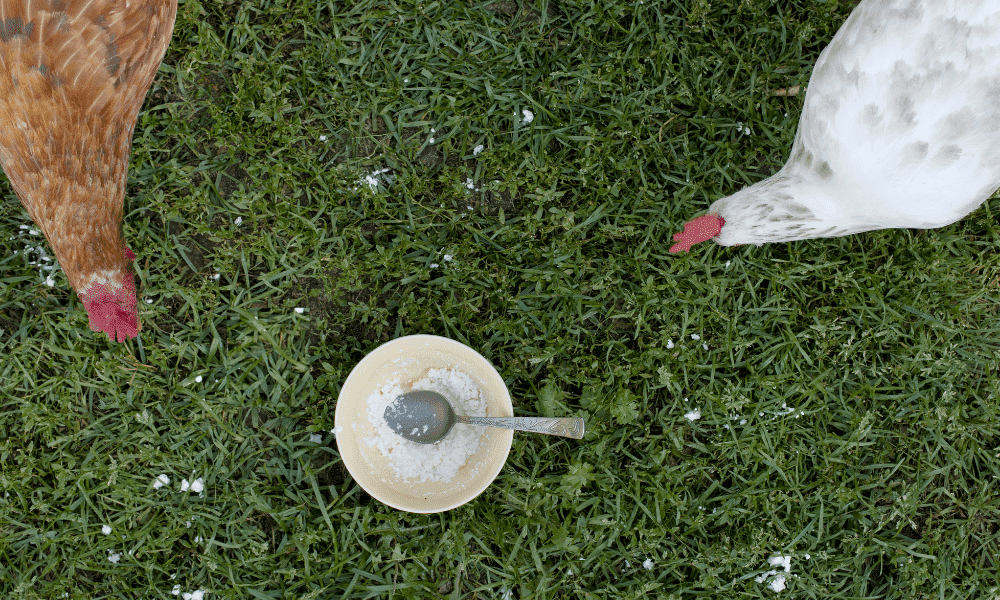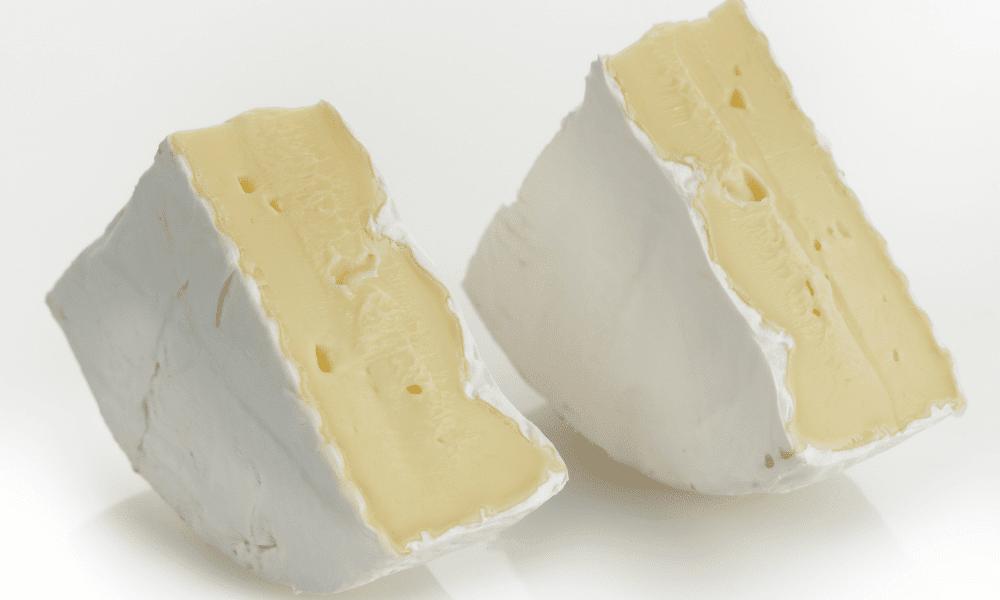Cheese is one of the foods that chickens love just as much as we do. That’s why they’ll appreciate having a cheese snack or treat every now and then. Still, not all types of cheese are safe for chickens to eat, and some are considered more unhealthy than others.
So can chickens eat brie cheese? The soft, creamy cheese we all love?
Here we go through exactly what you need to know, plus what benefits it really has for your chickens and how you can feed it to your chooks!
Can Chickens Eat Brie Cheese?

Cheese has a number of good healthy probiotic bacteria, but it’s also considered dairy and is generally high in fats. But in this case, brie cheese is among the types of cheese that are safe for chickens to eat.
So, your chickens can eat brie cheese and enjoy its creamy scrumptious taste, plus the host of health benefits it provides. That is, brie is an excellent source of vitamins, calcium, and other nutrients for your chickens, promoting their bone health and helping prevent physical deformities in their offspring.
Still, no matter how much your chickens love brie cheese, you should give it to them in moderation. No more than one small piece each once a week, as chickens don’t have the necessary enzymes that break down dairy products, including cheese.
As a result, eating cheese frequently may cause your chickens to have diarrhea. What’s more, cheese is high in fat, so it may even lead your chickens to become overweight.
So, giving your chickens brie cheese in moderation allows them to reap the nutritional benefits of the cheese without jeopardizing their health. Cream cheese is also OK for chickens, but they cannot have all types of cheeses.
Nutritional Benefit Of Brie Cheese For Chickens
Generally, brie cheese is very nutrient-dense; it contains several vitamins, calcium, protein, and probiotics. These nutrients are essential for your chickens’ health. When fed sparingly to your chickens, as a treat or a small snack, it can provide a variety of benefits.
Vitamins
Brie cheese is rich in vitamin B12, riboflavin, and vitamin A. One ounce of full-fat brie cheese provides 20% of the daily value for vitamin B12, 11% of the DV for riboflavin, and 6% of the DV for vitamin A.
These vitamins are essential for DNA formation, red blood cell production, egg production, the nervous system, and the immune system.
They can also help maintain the chickens’ epithelial cells. These cells can be found in the skin and the linings of the digestive, respiratory, and reproductive tracts.
Calcium
Calcium plays a critical role in your chickens’ health. It maintains bone health, nerve transmission, muscle function, vascular function, and hormone secretion. It’s also vital for egg production and strong eggshell formation.
An ounce of brie cheese can give your chickens about 52.2 mg, which is about 10% of the DV. This is a great snack to supplement your chickens with more calcium.
Protein
Brie cheese is high in protein, with approximately four grams per ounce. It can regulate, repair, form, and protect a chicken’s vital organs. This additional protein and rich energy is perfect for chickens in winter to help them stay warm!
Probiotics
Brie cheese has a high level of probiotic bacteria. These bacteria can significantly boost your chicken’s immune system.
What’s more, probiotics in cheese are generally similar to the ones in a chicken’s gut. As a result, they can help your chickens digest their food better.
Cheeses To Avoid Feeding Your Chickens
Brie cheese is certainly one of the most creamy and fatty cheeses. So you would think that if chickens can eat brie then they can eat all types of cheeses without any problems. Although chickens can eat most types of cheddar, soft cheeses, cottage cheeses, etc. you should avoid giving your chickens any:
- Heavily Processed Cheeses: While processed cheeses can be tasty, they lack any real nutritional value for your chickens, so are considered highly unhealthy for your chickens even in small amounts.
- American “Plastic” Cheese: Any “plastic” cheese or cheese that comes in a can or tin should be avoided as it’s full of additives and preservatives.
How To Feed Brie Cheese To Chickens

If it’s coming up to winter and you want to give your chickens a bit of winter weight, or you just want to give your chickens a diverse nutritional diet then brie cheese can be fed to your chickens in two ways.
- The first way is to simply finely chop the brie cheese into bite-size pieces and feed it to them as a snack or treat. Once they’ve had it once they’ll come running from all across the yard just to get a piece next time.
- The second way is to finely chop the brie cheese and add it to a healthy table scrap meal mix for your chickens once a week. Add healthy foods like root vegetables and low-sugar fruits. Chickens love beets, parsnips, scrambled eggs, and seeds.
- Even consider adding some to your mac & cheese. In moderation, chickens can eat homemade mac and cheese as a treat!
In Conclusion
So your chickens can enjoy some brie cheese every now and then and it’s perfectly safe and even has its health benefits. If you’re feeding your chickens any foods with brie in it, then it’s perfectly fine too – so long as that food is safe for chickens too.
Still, remember it’s all about balance. Too much brie cheese will be considered unhealthy for your chickens and can cause them to get diarrhea which isn’t fun for anyone.
